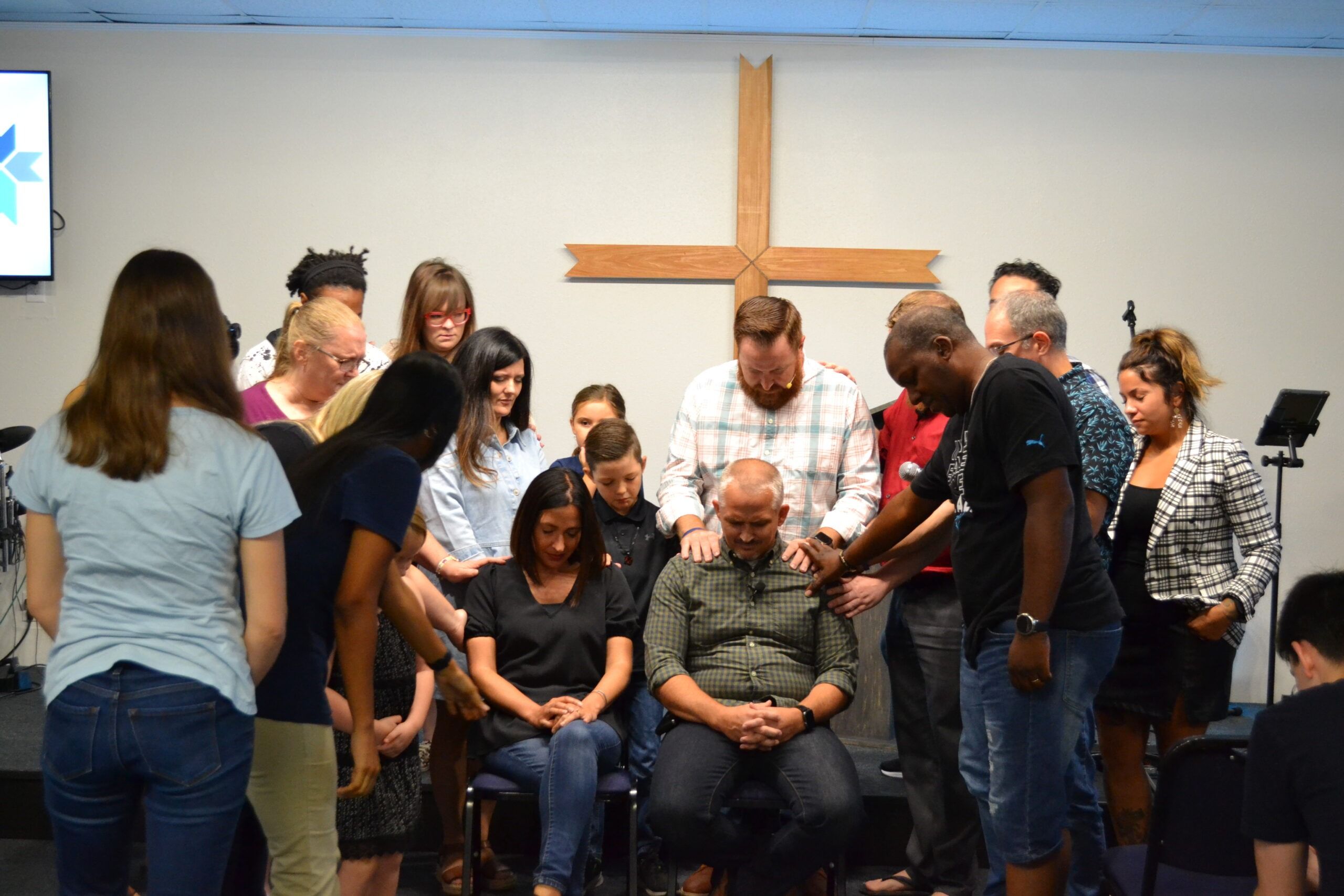How to Support Oversea Missionaries
At the time this blog was posted, Jeremy and Karissa Lynn are heading back to Ethiopia where they will serve and proclaim the gospel to the people outside of Addis Ababa.
They are returning home.
It’s strange for me to say that because in my mind, Ethiopia is a place they go to for a few years and then return home to see family and to rest. In my mind, they’re just on an extended mission trip. My mind thinks this way because selfishly, I want them to come back home.
But this is not their home. Ethiopia is their home.
Last night we said goodbye. We hugged and cried and said “See you later” even though we don’t know when “later” is. I watched as my kids said goodbye and was heartbroken when my daughter yelled through the car window, “See you when I’m eleven!”
She’s eight. Three years is a long time for them to be away from home. A lot can happen in three years.
But that last sentence is layered with selfishness because, for them, the four weeks here in the United States was a long time to be away from home. Their heart is in Ethiopia. It is where God has called them. It is where they have obediently gone. Leaving everything they know behind to take the gospel of Jesus to people halfway around the world.
This is just a very small glimpse from our perspective as a family of oversea missionaries.
As Jeremy preached from Revelation 3:1-6 this past Sunday, he made a statement that has burned a fire within my soul. A statement that I am sure will be repeated several times in our gatherings.
“The influence we have today does not guarantee the influence we have tomorrow”.
The loss of our gospel influence occurs when we lose sight of Jesus and our mission and begin to focus either inwardly or allow the outward influence of the culture to infiltrate. The church in Sardis is a reminder that we fight for our influence. We do not give up. We do not give in. We press on as lights of the world and salt of the earth.
For a brief moment, I want to give three ways we can support the influence of overseas families. They are an extension of our church, partnering with us in the same mission to make disciples of all nations.
Frequently Pray for them.
“Of course, we should pray for them!” you may say. But let me encourage us to put it into practice. Let’s actually do it, as modeled to us by the church in Acts 12.
“So Peter was kept in prison, but earnest prayer for him was made to God by the church.” (Acts 12:5)
When we share the missions update, take the time to pray for them. Set a time each week to take their name to the throne of heaven. Pray for their strength in the Lord. Pray for their encouragement in their calling. Praying for their protection, both physically and spiritually. Pray for their ministry.
As you pray for them, pray also for the disciples and leaders they are developing. These brothers and sisters will be on the front lines of ministry with the missionary family. Pray for their families, for their hearts to be strengthened, and for their joy to increase.
Financially Support them.
In Philippians 4, Paul writes to the church in Philippi, thanking them for their generous gifts in support of his ministry.
And you Philippians yourselves know that in the beginning of the gospel, when I left Macedonia, no church entered into partnership with me in giving and receiving, except you only. [16] Even in Thessalonica you sent me help for my needs once and again. [17] Not that I seek the gift, but I seek the fruit that increases to your credit. [18] I have received full payment, and more. I am well supplied, having received from Epaphroditus the gifts you sent, a fragrant offering, a sacrifice acceptable and pleasing to God. [19] And my God will supply every need of yours according to his riches in glory in Christ Jesus. [20] To our God and Father be glory forever and ever. Amen. (Philippians 4:15–20)
Overseas missionaries rely on the generous giving of churches back in the United States. It takes a lot of financial resources to not only get missionaries over there but to help them stay there. Most missionaries go on a religious visa, preventing them from working. Some go on a work visa, which likely means they are going to a place that is unfriendly towards Christianity. Either way, mission giving helps support overseas missions.
Our church supports the Lynn family at $200 a month. This is made possible because of your generous giving. Not only do we seek to be cheerful givers individually, giving what the Lord has led us to give (2 Corinthians 9:6-7), but we seek to be ten percent givers as a church too. We don’t want to keep the resources just inwardly but use them to proclaim the gospel close to home and to the nations.
One way you financially support the Lynns (and other missionaries) is by giving faithfully and giving directly. If the Lord leads, you can give above an beyond your normal tithe/giving and give directly to the missionary families. You can do so directly in our giving portal. If you need any assistance, please reach out to Pastor Ben.
Faithfully Encourage Them.
Finally, we can faithfully encourage them when we see them or we can encourage them by sending them an email or text. They may not always hear our prayers and money may be the resource that keeps them there, but encouragement is the fuel that often helps them get to the next day.
Some days heavily weigh on them. There are days when it seems easier to quit than to stay. It could be due to a stressful situation in the local market. Or a day where they waited in line for gas for several hours only to find out the pumps were empty. Or a day when the tension of the government runs into the streets. Or a day when the power goes out and you have no access to water.
These are just a few examples of daily life in Ethiopia and why simple encouragement is an incredible blessing to the Lynns. Encourage them to persevere. Encourage them to look to Jesus. Celebrate their service. Tell them you love them.
If you would like to send the Lynns a note of encouragement, email the encouragement to us at info@thegracelifechurch.org and we will forward it to them.
In the future, we will introduce you to new mission partners. All of these practices listed above are our way of saying to them, “You are not alone. We are behind you. We are praying for you!”
And one day when we are all truly home in heaven, we will celebrate the missional heart of the Father who not only sent His Son for us, but sends us out to proclaim His gospel.
By His Grace,
Pastor Matt





